
Ethiopia is known for its historic agriculture, but also for the associated, widespread, and ongoing land degradation. The older agricultural areas of the northeast have long been particularly affected, but the highest soil erosion rates are currently being observed in the western parts of the highlands. The processes of soil...

Gedaref State was previously known as the food basket of Sudan. Over several decades unsustainable agricultural practices that combined near-monocropping with low nutrient replenishment have led to significant degradation of soils, which are no longer able to sustain farmer livelihoods. This study found that adopting an integrated sustainable land use...
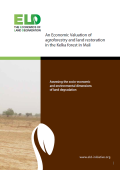
The Kelka forest in the Mopti region of Mali is important for the provision of ecosystem services like carbon sequestration and maintenance of the hydrological cycle. The Kelka forest area occupies more than 300, 000 hectares with 15 villages within and around its boundaries. The forest resources and soil fertility of the forest are in continuous decline...
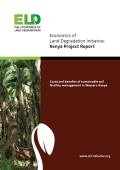
Kenya’s soils are being degraded through suboptimal land management practices, causing declining yields and deterioration of land quality. Sustainable Land Management (SLM) practices can improve soil quality and enhance crop yields. Increasing evidence from the literature highlights the benefits from SLM, but for land users to adopt these practices requires...
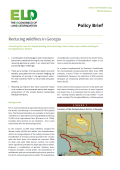
A combination of anthropogenic and climatic factors, particularly traditional burning of crop residues, are reducing agricultural yields in an important food producing region of Georgia. There are a number of private and public costs and benefits associated with two scenarios reducing the incidence of burning in the agricultural sector. For both...
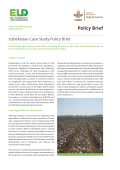
Independence from the former Soviet Union in 1991 presented the republics of Central Asia, Kazakhstan, Kyrgyzstan, Tajikistan, Turkmenistan, and Uzbekistan, with severe challenges for land management with ensuing economic, social, and environmental crises. Driven by the historic development of irrigation projects, often unsupportable increases in livestock numbers on rangelands, and...

Independence from the former Soviet Union in 1991 presented the republics of Central Asia, Kazakhstan, Kyrgyzstan, Tajikistan, Turkmenistan, and Uzbekistan, with severe challenges for land management with ensuing economic, social, and environmental crises. Driven by the historic development of irrigation projects, often unsupportable increases in livestock numbers on rangelands, and...

Independence from the former Soviet Union in 1991 presented the republics of Central Asia, Kazakhstan, Kyrgyzstan, Tajikistan, Turkmenistan and Uzbekistan, with severe challenges for land management with ensuing economic, social, and environmental crises. Driven by the historic development of irrigation projects, often unsupportable increases in livestock numbers on rangelands, and...
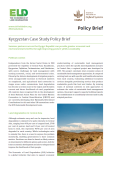
Independence from the former Soviet Union in 1991 presented the republics of Central Asia; Kazakhstan, Kyrgyzstan, Tajikistan, Turkmenistan, and Uzbekistan, with severe challenges for land management with ensuing economic, social, and environmental crises. Driven by the historic development of irrigation projects, often unsupportable increases in livestock numbers on rangelands, and...

Independence from the former Soviet Union in 1991 presented the republics of Central Asia, Kazakhstan, Kyrgyzstan, Tajikistan, Turkmenistan and Uzbekistan, with severe challenges for land management with ensuing economic, social, and environmental crises. Driven by the historic development of irrigation projects, often unsupportable increases in livestock numbers on rangelands, and...
